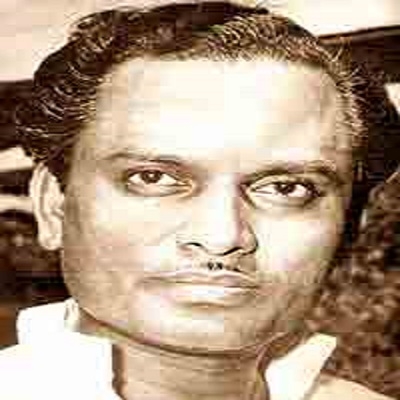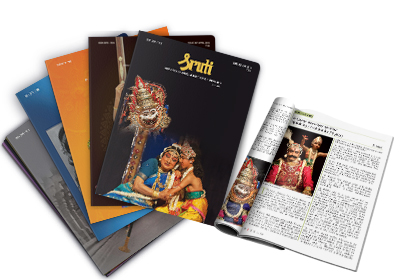
Anil Biswas
Anil Biswas, the famous Indian composer, was an artist who successfully donned many hats.
Although his claim to fame was better known through his melodious music compositions for Hindi films, his knowledge and repertoire extended to western symphonic music and Indian classical and folk music. He introduced orchestral music and full-blooded choral effects in Indian cinema through the first Indian orchestra of twelve pieces.
Born on July 7, 1914 in Barisal, East Bengal (now Bangladesh), Anil Krishna Biswas grew up in a household that dabbled in theatre and music. With a keen ear for music, Biswas displayed considerable talent, mastering the tabla at age 14 and composing music at local concerts. But soon, the fervour of the freedom struggle touched Anil like many others in Bengal and he joined the Indian Independence Movement while barely in his school leaving years. His studies were disrupted by his involvement in revolutionary activities and jail sentences. In 1930, Anil’s father J C Biswas passed away, leaving him no option but to move to Kolkata to avoid further arrests.
Kolkata was the culture capital of India back then and music, arts, theatre and dance flourished. Anil joined the Rangmahal Theatre singing and acting in many stage productions. His interaction with renowned classical singers versatile in the khayal, thumri and dadra styles widened his knowledge of music and he himself became accomplished in the Shyama Sangeet and Kirtan styles of devotional music.
During this time he met and worked briefly with the iconic singer Kundan Lal Saigal and the brilliant music director Sachin Dev Burman of the ‘Hindustan Recording Company’ before they moved to Mumbai. Anil himself moved there in 1934 when playback singing was just making its debut in Indian cinema. Starting afresh in Mumbai with small roles in acting and playback singing, Anil received his first break when he joined Sagar Movietones and worked as assistant to composers like Ashok Ghosh and Pransukh Nayak continuing with Sagar Movietones even after its merger with National Studios in 1939.
In 1937, Mehboob Khan’s Jagirdar became a huge hit; Anil Biswas’s music score adding to the film’s success and establishing him as an independent musical force. The next two decades saw Anilda, as he came to be called, reach the pinnacle of musical excellence churning out hit after hit. Through his singular achievements in composing popular and hummable melodies that have remained evergreen to this day, he introduced to Indian film compositions with the inclusion of indigenous instruments in western orchestras, a trend that caught on and remains well entrenched even today.
Anilda showed the way for many playback singers like Mukesh, Talat Mahmood, Surendranath, Parul Ghosh, Amirbai Karnataki and Roshan Ara Begum. The Nightingale of India, Lata Mangeshkar has gone on record to say that Anil Biswas truly paved the way for her success as a singer and gave her invaluable tips on breath control during song recording.
In 1961, Anilda’ son Pradeep died in an air crash leaving the composer unable to cope with the tragedy. This marked the beginning of his exit from the music scene. By this time, he was also getting disillusioned at the changing equations of film music and he quit films.
The year 1963 saw Anilda become Director of the National Orchestra at All India Radio (AIR) and he continued till 1975 as Chief Producer of Sugam Sangeet, a light Hindustani classic music programme on AIR. Through the 1980s and 90s he was associated with music compositions for the earliest serials on Doordarshan and many documentaries for the Films Division.
Anil Biswas was awarded the Sangeet Natak Akademi award in 1986. His end came on May 31, 2003 in New Delhi leaving the world to mourn “that doyen of music who struck a rare balance between classical purity of music and the popular pulse”.


